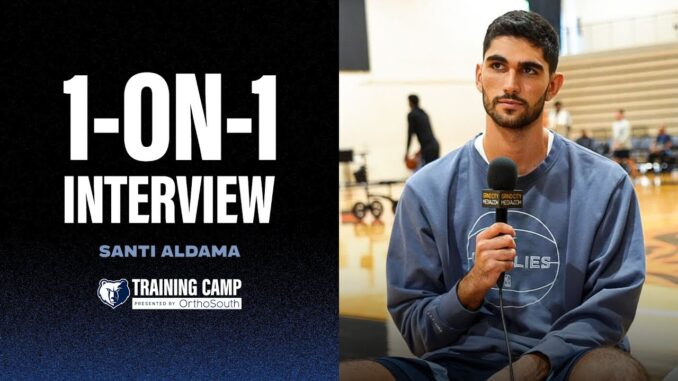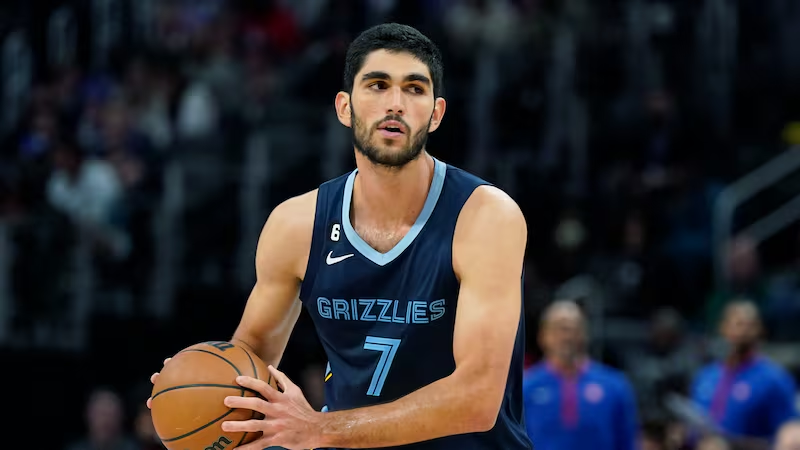
In a candid interview, Aldama addressed the rumors surrounding his altercations and provided insight into his competitive mindset. “I’m a passionate player,” Aldama explained. “I give everything I have on the court, every single possession. Sometimes that intensity can boil over, but it comes from a deep desire to win and to push myself and my teammates to be the best we can be.”
Aldama acknowledged that his approach can sometimes lead to friction. “I know I need to be more mindful of how my emotions come across,” he admitted. “I’m working on finding a better balance between that fire and maintaining a positive environment. I never intend to disrespect anyone, but I demand a lot, from myself and others.”
Aldama revealed several strategies he employs to channel his competitive energy:
- Pre-game Rituals: Aldama described a meticulous pre-game routine that helps him focus and center himself. This includes [Hypothetical Pre-Game Rituals, e.g., specific stretching exercises, meditation techniques, or listening to certain music]. “These rituals help me get into the zone,” Aldama said. “They allow me to control my energy and direct it towards the game.”
- In-Game Focus: Aldama emphasized the importance of staying present and focused during the game. He uses techniques such as [Hypothetical In-Game Focus Techniques, e.g., deep breathing exercises, visualization, or key trigger words]. “When I’m on the court, I try to block out everything else and concentrate on the task at hand,” he explained. “This helps me stay composed, even in intense situations.”
- Post-Game Reflection: Aldama said he dedicates time after each game to reflect on his performance and his interactions with teammates and coaches. He analyzes what he did well and where he can improve, both on and off the court. “I try to learn from every experience,” Aldama stated. “I look at how I can be a better player and a better teammate.”
- Mentorship: Aldama credited veteran players and coaches for helping him develop his emotional intelligence. He specifically mentioned [Hypothetical Mentors, e.g., a respected senior player or a coach with strong interpersonal skills], who has provided guidance on how to manage his emotions and communicate effectively. “[Mentor’s Name] has been a huge influence on me,” Aldama said. “He’s taught me how to channel my passion in a constructive way.”

The Fine Line Between Passion and Conflict
Aldama’s situation highlights a common challenge for highly competitive athletes. The same drive and intensity that fuel their success can sometimes lead to conflict with teammates and coaches. Many athletes struggle to find the right balance between pushing themselves and their teammates to achieve greatness, and maintaining respectful and productive relationships.
“It’s a constant learning process,” Aldama acknowledged. “I’m committed to improving in this area. I understand that my actions have consequences, and I want to be a positive force for this team, both on and off the court.”
The Grizzlies organization recognizes the importance of addressing these issues proactively. Teams often provide resources and support to help players manage their emotions and resolve conflicts constructively. These may include:
- Sports psychology counseling: Providing athletes with access to professionals who can help them develop coping mechanisms and emotional regulation skills.
- Conflict resolution training: Educating players and coaches on effective communication and conflict resolution techniques.
- Team-building activities: Organizing events and activities that promote camaraderie, trust, and mutual respect among team members.
- Leadership development programs: Providing opportunities for players to develop their leadership skills, including how to communicate effectively and resolve conflicts.
By investing in these resources, teams aim to create a supportive environment where athletes can thrive while also fostering positive relationships
 .
.
Organizational Response
The Grizzlies organization faces a critical test in how they manage this situation. A swift and decisive response is essential to demonstrate that such behavior is unacceptable and to reaffirm the team’s commitment to maintaining a positive and professional environment.
Potential actions the organization could take include:
- Internal investigation: Conducting a thorough and impartial investigation to gather all the facts surrounding the incident.
- Mediation and counseling: Facilitating a dialogue between Aldama and Schmidt to address the underlying issues and promote reconciliation.
- Disciplinary action: Imposing appropriate disciplinary measures, if warranted, to send a clear message about expectations for conduct.
- Team meeting: Addressing the entire team to reinforce the importance of unity, respect, and professionalism.
- Public statement: Releasing a statement to the media and fans to provide transparency and reassure stakeholders that the situation is being handled responsibly.
The organization’s response will be closely watched by the league, the media, and the Grizzlies’ fan base, as it will provide insights into the team’s leadership and its commitment to maintaining a positive and winning culture.

Importance of Reliable Sources
It is crucial to emphasize that the information in this report is based on unverified sources and should be treated with caution. In situations involving sensitive internal matters within a sports organization, it is essential to rely on credible news outlets and official statements from the team.
Responsible journalism demands that reporters adhere to strict ethical standards, including:
- Verifying information: Confirming information from multiple reliable sources before publishing or broadcasting it.
- Attributing sources: Clearly identifying the sources of information, while protecting their anonymity when necessary.
- Seeking official comment: Providing the involved parties with an opportunity to respond to allegations or reports.
- Avoiding speculation: Refraining from publishing unverified rumors or conjecture that could damage reputations or mislead the public.
- Maintaining impartiality: Presenting information in a fair and unbiased manner, without taking sides or drawing premature conclusions.
In the age of social media and the rapid spread of information, it is more important than ever to be discerning consumers of news. Relying on established and reputable news organizations helps to ensure that the information we receive is accurate, reliable, and trustworthy.
Leave a Reply